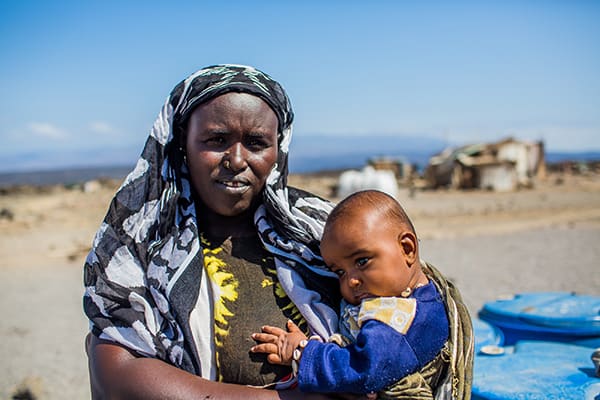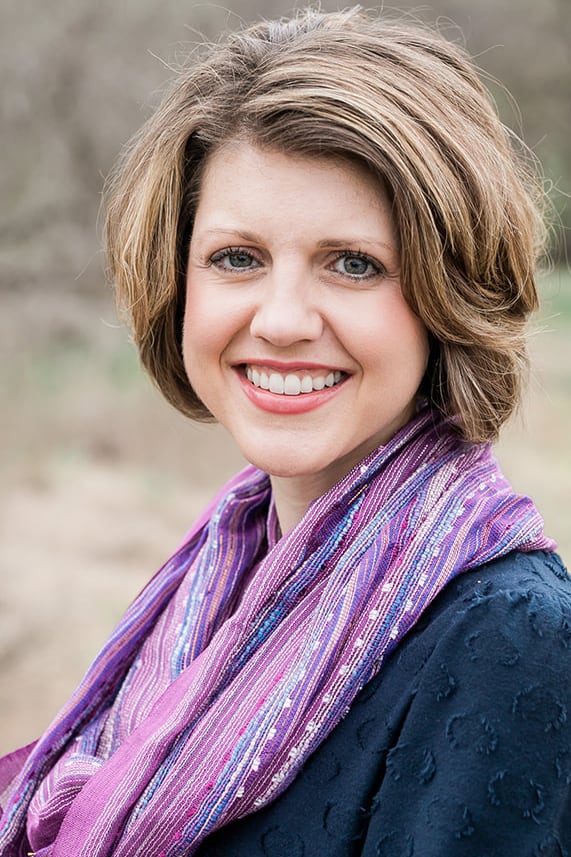How Humanitarian Aid Helps Women Around the World
By Amanda DeWitt

Women are the bedrock of society in most developing cultures. Often they are forced to navigate life’s constant insecurities and challenges without adequate support.
Mothers everywhere work hard to support their families. But in the toughest places they are forced to work even harder. Women are responsible for preparing food, collecting water, maintaining the home, and caring for children. They often plant gardens or raise livestock to help provide for their family’s nutritional needs. They may also sell produce or other goods at local markets or seek additional work just to make ends meet.
Despite all their toil, sacrifice, and service, many mothers constantly face overwhelming challenges and obstacles. But when they are equipped with proper support and the message of hope, they can overcome almost anything.
The Challenges Women Face
Studies show that women and girls are disproportionally affected by humanitarian issues — famine, drought, natural disasters, pandemics, poverty, and gender inequalities.
Food insecurity: The World Food Program reports that “women often eat last and least in countries facing conflict, famine, and hunger.” Women and girls are also more likely to face food insecurity and to live below the absolute poverty line of $2 a day.
Water-related issues: According to UNICEF, women and girls around the world collectively spend roughly 200 million hours every day searching for water. They often walk for miles to the nearest well, carrying home a filled container that weighs up to 50 pounds. Along the rural routes they travel, they risk gender-based violence, or animal attacks just to collect water. And even after so much work, the water they collect may be dirty — exposing them and their families to deadly waterborne diseases.
Healthcare access: Women are less likely to have access to proper healthcare, either because formalized healthcare does not exist in their area or because it is too expensive. The World Health Organization reports that every day “approximately 810 women [die] from preventable causes related to pregnancy and childbirth.”
Lack of education: Women and girls also have less access to education than men and boys. UNESCO estimates that 129 million school-age girls are not in school. In developing countries they are less likely to complete primary and secondary school. And once they enter the workforce, they face additional challenges. An estimated 2.4 billion women do not have access to equal economic opportunity. According to the World Bank, “Globally, women still only have three quarters of the legal rights afforded men.”
Despite the challenges they face, women are resilient. And with proper assistance and coaching, they are able to build a better, brighter future for themselves and their families.
The Difference Humanitarian Aid Makes
Humanitarian aid and training allow women and their families to survive — and even thrive — in the toughest places.
Food: Many women in developing countries plant gardens to help meet their family’s nutritional needs. But during the dry season, a garden may not produce enough food. That is why local Unto® team members provide families with meals to help fill in the gaps. In addition, Unto sends agricultural team members to train both women and men on ways to grow productive gardens that provide more healthy vegetables through longer growing seasons.
Proper nutrition helps keep families healthy. It allows children to stay in school and focus on learning. And for families facing displacement, disaster, or famine, meals help save lives.
Water: As mentioned previously women and girls are often responsible for drawing water for their families, a chore that can take hours every day. The time spent collecting water can prevent mothers from caring for their children or doing other household tasks. Often girls are late to school or unable to attend because of this daily chore.
Access to safe, clean water changes everything. A newly drilled or repaired well provides families with plenty of clean water for drinking, cooking, hygiene, and growing food year-round. It allows mothers more time to care for their children and families. It allows girls to return to school. And it protects both women and children from the dangerous walks along rural roads.
Critical Aid: One of the best ways to promote health within a community is to provide women with proper training and supplies. Together with local partners serving in at-risk areas, our staff members host workshops to educate and discuss topics related to the basics of health, hygiene, and childbirth. During the training they also discuss how God loves and values women. It is a message that resonates deeply, and many want to know more about the eternal hope of Jesus. At the end of the training, women are equipped with hygiene supplies they can take home.
The Community Impact of Equipped Women
Women in developing societies can transform their communities. With proper education and support, they are able to make a lasting impact on their families, neighbors, and future generations.
When women are healthy and equipped with adequate resources, they are more prepared to carry out their responsibilities. Mothers are able to prepare food, collect water, plant gardens, raise livestock, and care for children. Women learn practical ways to care for their family’s health through proper nutrition, hygiene, and sanitation as well as through basic illness prevention and treatment.
One of our team members shared,
Women who are secure and have strong faith are better able to deal with the trials of a family. Knowing who they are in God’s eyes gives them security. This helps a woman better care for herself, her family, and the community.
Equipped with humanitarian assistance and hope, a woman can have a positive impact on the people around her. She can also influence generations to come — pointing others to the ultimate source of help and hope in every circumstance.
Ship Lifesaving Aid to Families in the Toughest Places
With so much going on in our world, there is a lot we can do to help suffering mothers and their families. Right now Unto has nine HUGE containers of lifesaving humanitarian aid staged to ship. Most items have been donated or purchased at deep discounts, so all we need are the funds to assemble, ship, and distribute the supplies to families in the toughest places. Every $10 you give now helps ship $100 worth of lifesaving aid — and share the hope of Jesus.
Published May 20, 2022

Amanda is a freelance writer whose work has appeared in Gift for Leadership, Kindred Spirit, and Christianity Today publications. She holds a M.A. in Media and Communication from Dallas Theological Seminary.





